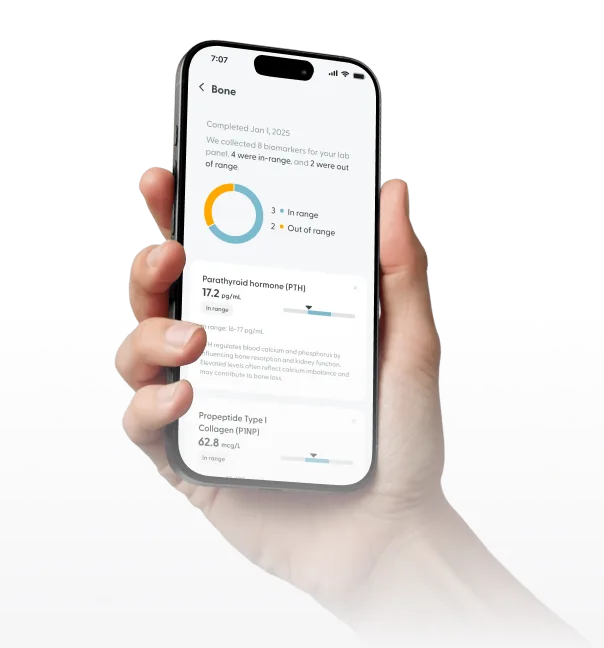Schedule
Book a telehealth appointment from wherever you are. No insurance necessary.
Achieve your weight-loss goals with GLP-1 treatments like Wegovy® and Zepbound®, guided by licensed providers every step of the way.
Personalized care for women, with HRT and lifestyle support to ease menopause symptoms and restore balance.
Simple, supportive mental health care on your terms, including access to prescription medication when appropriate.
Care without the wait—connect 24/7 with licensed providers for same-day prescription refills and common concerns like colds, flu, rashes, and more.
Talk to a doctor anytime, anywhere — 24/7 urgent & primary care with a telehealth visit in under one hour.
Get your medication prescribed online and sent same-day to your local pharmacy for pickup.
Save time, money, and the hassle — no in-person visits or insurance required.


Prescription treatments are tailored to your specific condition, ensuring effective relief.

Urgent evaluation is crucial to identify your condition early and prevent complications.

Accurate testing, if needed, can confirm your diagnosis and guide the best course of treatment

Licensed providers can send prescriptions to your local pharmacy within an hour, day or night.

step 1
Book a telehealth appointment from wherever you are. No insurance necessary.

step 2
Meet with a board-certified doctor or nurse practitioner from your mobile device.

step 3
Get a prescription if needed (save up to 90%), and pick it up at your pharmacy.
Being constipated means bowel movements become less frequent and more difficult to pass. Constipation can have a lot of causes including lack of exercise and not enough fiber in the diet. It can also go along with certain digestive conditions such as irritable bowel syndrome (IBS).
A healthcare provider can help determine the root cause of your constipation, recommend lifestyle changes, and write you a prescription if needed.
Get Started Get Started
Total Cholesterol

37 mg/mL
In range

LDL (Low-Density Lipoprotein)

47 mg/mL
In range

Triglycerides

158 mg/mL
Above range

Works by increasing contractions in the colon, leading to an increase in the number of bowel movements.
Increases the fluid secretion of the bowels, which helps ease the passage of stool out of the body.
Like lubiprostone, it increases the fluid secretion of the bowels, helping to ease the passage of stool.
“Dr. Puopolo is a very knowledgeable doctor with vast experience in different medical fields. I feel I am in good hands.”
Verified Patient

“Great experience!! Never have done online telehealth before but for sure will again :)”
Verified Patient

“Dr. Culpepper was amazing. He explained things to me that I didn’t understand.”
Verified Patient

“Dr. Sehgal was amazing! Super helpful. She was answering my questions before I even asked. Very happy I picked her.”
Verified Patient

"The appointment went great. It was quick and easy, and the doctor was right on top of things!"
Verified Patient

Reviews shown are from verified LifeMD patients across various services. Photos are for illustrative purposes only.
Constipation is a condition that occurs when bowel movements become infrequent or difficult to pass. Several factors can cause constipation, including a low fiber diet, dehydration, lack of physical activity, certain medications, and medical conditions such as digestive disorders, thyroid disorders, diabetes, and neurological disorders. Delaying or ignoring the urge to have a bowel movement — and stress or anxiety — can also contribute to constipation.
Yes, stress can cause constipation. Stress activates the sympathetic nervous system, which can slow down the digestive system, leading to constipation. Stress can also affect the way food moves through the intestines and the balance of gut bacteria, both of which can contribute to constipation. Additionally, stress can cause changes in eating habits and physical activity, which can also impact bowel movements.
Yes, constipation can cause back pain. When stools become hard and difficult to pass, it can cause straining during bowel movements. This can put pressure on the muscles and nerves in the lower back, leading to pain and discomfort.
In addition, constipation can cause inflammation in the digestive tract, which can also contribute to back pain. It’s important to seek medical attention if you’re experiencing symptoms of back pain, as this could be a sign of a more serious condition.
Yes. When there’s a backup of stool in your digestive tract, this can result in abdominal discomfort, bloating, and nausea. Additionally, when your body is trying to move stool through your digestive tract, it can trigger the release of chemicals and hormones that may lead to feelings of nausea.
To alleviate constipation related to irritable bowel syndrome (IBS), try increasing your fiber intake, staying hydrated, exercising regularly, and incorporating stress management techniques. If these lifestyle changes aren’t enough, your healthcare provider may recommend OTC or prescription medication.
If you’re constipated, be sure to eat plenty of high-fiber foods such as fruits, vegetables, whole grains, and legumes, as well as drink lots of water to help soften stools and aid in digestion.
In some cases, constipation can be a sign of a more serious underlying condition, especially if it’s accompanied by blood in the stool, unexplained weight loss, severe abdominal pain, or vomiting. If you’re experiencing any of these symptoms along with constipation, it is important to work with a healthcare provider to determine the underlying cause.

Family Medicine
4.93 stars 170 reviews


Internal Medicine
4.98 stars 178 reviews


Internal Medicine
4.92 stars 261 reviews


Family Medicine
4.94 stars 178 reviews


Hormone Specialist
4.92 stars 163 reviews
